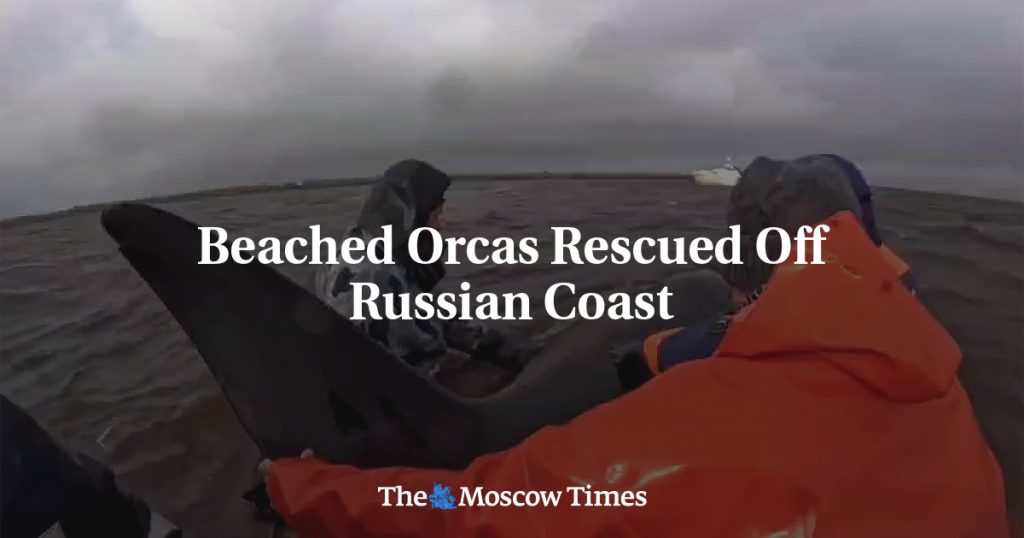Russian rescue teams successfully saved a family of orcas who had become stranded in shallow water in the Far East of the country. The group of cetaceans, consisting of two adults and two young orcas, had been stuck on the shore of the Kamchatka peninsula for two days before rescue efforts were initiated. The Emergency Situations Ministry and volunteers worked together to keep the marine mammals hydrated and tried to move them into deeper water by hand to prevent them from drying out.
After two days of efforts, the orcas were finally able to return to the sea. Specialists guided the orcas up an estuary to where the water was deep enough for them to swim, allowing them to make their way back to the ocean. The orca, also known as the killer whale, is a toothed whale belonging to the dolphin family and is a predator that feeds on seals and fish. With a global population estimated at 50,000 individuals, orcas are found in various oceans around the world.
The successful rescue mission of the stranded orca family was a heartwarming event that showcased the dedication and efforts of the rescue teams and volunteers involved. By working tirelessly to keep the orcas hydrated and moving them into deeper water, the teams were able to ensure the safety and well-being of the marine mammals. The orcas’ return to the ocean marked a triumph for conservation efforts and highlighted the importance of protecting these majestic animals to preserve biodiversity in marine ecosystems worldwide.
The orca rescue operation in Russia’s Far East serves as a reminder of the threats faced by marine wildlife due to human activities such as pollution, habitat destruction, and climate change. The incident also underscores the critical role that individuals and organizations play in safeguarding the environment and wildlife. By raising awareness about the challenges faced by marine animals like orcas, communities can work together to implement conservation measures and protect these vulnerable species from harm.
The successful rescue of the stranded orcas in Russia highlights the importance of international cooperation in conservation efforts to protect marine wildlife. As global citizens, it is crucial to recognize the interconnectedness of ecosystems and the impact of human actions on the health of the planet. By working together across borders and sharing expertise and resources, countries can address environmental challenges and promote sustainable practices to ensure the survival of endangered species like orcas.
In conclusion, the rescue of the stranded orcas in Russia’s Far East is a testament to the resilience and compassion of humans in protecting wildlife and the environment. Through joint efforts and dedication, the rescue teams and volunteers were able to save the orcas and facilitate their return to the ocean, showcasing the positive impact of conservation initiatives. Moving forward, it is essential for individuals, communities, and governments to continue working together to safeguard marine ecosystems and preserve the rich biodiversity of our oceans for future generations.


